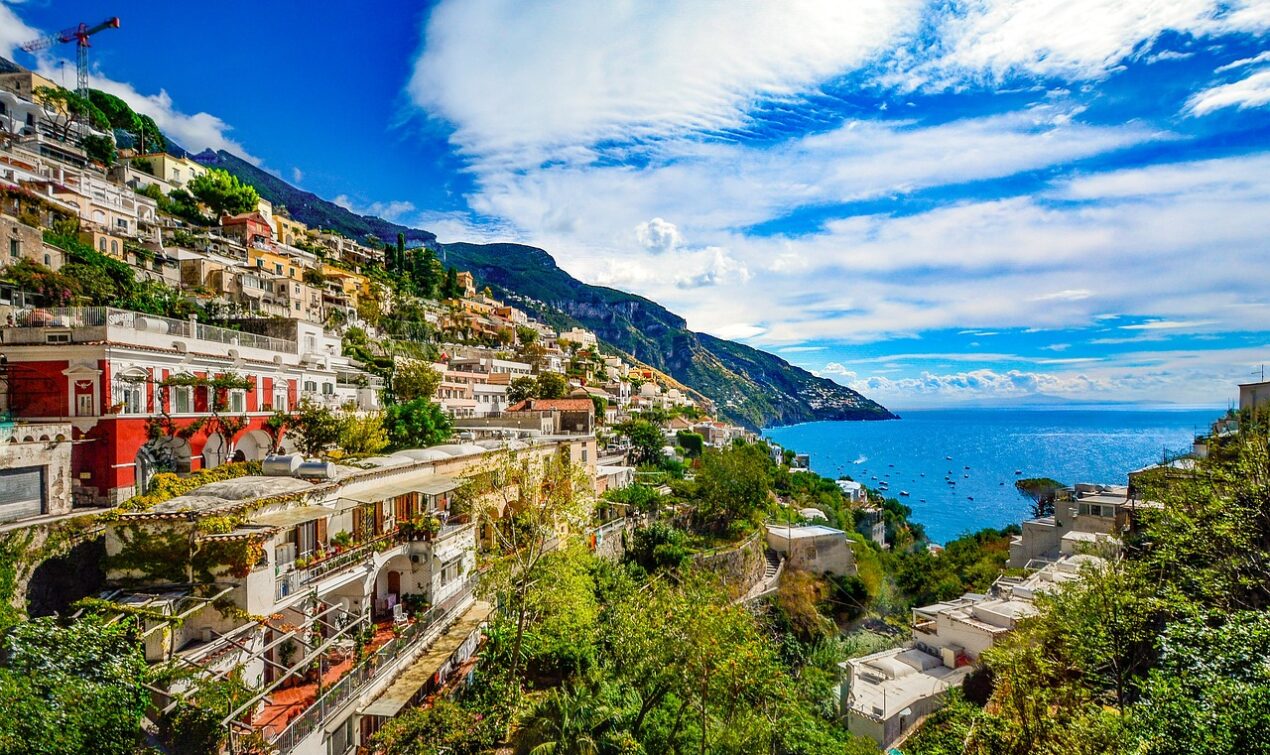How much does it cost to live in the Mediterranean?

The mediterranean region, renowned for its picturesque landscapes, rich history and vibrant culture, has long been a popular destination for tourists and expatriates alike. With its diverse countries offering a blend of modern amenities and traditional charm, many individuals dream of making a life for themselves in this stunning part of the world.
However, before embarking on such a venture, it is essential to understand the cost of living in the Mediterranean and how it can vary across different countries. In this article, we delve into the factors that influence the cost of living in the Mediterranean and provide a general overview of expenses to consider when contemplating a move to this region; additionally, we will provide a list of the best places to live in the Mediterranean and explain why people in the Mediterranean live longer.
Advantages and disadvantages of living in the Mediterranean
Living in the mediterranean region offers a unique lifestyle and a range of advantages; however, like any other place, it also presents some challenges. Here are some of the advantages and disadvantages of living in the Mediterranean!
Advantages:
- Climate and natural beauty: the mediterranean region is famous for its pleasant climate, with mild winters and warm summers. The abundance of sunshine and beautiful landscapes, including stunning coastlines and picturesque countryside, provide a high quality of outdoor living.
- Cultural richness: the mediterranean is steeped in history, with numerous ancient ruins, art and architecture. The region offers a rich cultural tapestry, vibrant festivals and a diverse culinary tradition that includes delicious Mediterranean cuisine.
- Healthy lifestyle: the mediterranean diet is renowned for its health benefits. Living in the Mediterranean provides easy access to nutritious food and promotes an active lifestyle, with opportunities for outdoor activities such as swimming, hiking, and cycling. You can learn more about the mediterranean diet in our article: “Mediterranean Lifestyle: what it is, habits and foods.”
- Strong sense of community: mediterranean cultures often emphasize close-knit communities and strong family bonds; the warm and welcoming nature of the people fosters a sense of belonging and support, creating a tight-knit social network.
- Slow-paced lifestyle: many mediterranean countries embrace a relaxed and laid-back attitude towards life. This slower pace allows for more leisure time, promoting work-life balance and reducing stress levels.
Disadvantages:
- High cost of living: in some mediterranean cities, particularly popular tourist destinations, the cost of living can be relatively high. Housing, especially in sought-after coastal areas, can be expensive and certain goods and services may come with a premium price tag.
- Economic challenges: some mediterranean countries face economic challenges, including high unemployment rates and limited job opportunities, which may impact the financial stability and career prospects of residents.
- Infrastructure and services: while major cities often have well-developed infrastructure, smaller towns and rural areas in the mediterranean region may face challenges in terms of transportation, healthcare facilities and public services.
- Crowded tourist areas: The Mediterranean attracts a significant number of tourists, especially during peak seasons; this influx can result in crowded beaches, tourist-centric areas and increased traffic congestion, which may detract from the peacefulness of certain locations.
But before we go on to check how much does it cost to live in the mediterranean let’s see which are the best places to choose and where to live
Best places to live in the Mediterranean

From stunning coastal towns, to historic cities nestled amidst picturesque landscapes, the Mediterranean presents an abundance of options for those seeking an idyllic place to reside.
Moreover, it has been observed that people in the Mediterranean tend to enjoy longer lifespans compared to many other regions. Let’s discover together the best places to live in the Mediterranean:
- Amalfi Coast, Italy: the Amalfi Coast’s dramatic coastline, charming towns and delectable cuisine make it a sought-after location for those seeking a mediterranean haven. With its mild climate, close-knit communities and emphasis on a balanced lifestyle, this coastal paradise is known for promoting longevity and well-being.
- Barcelona, Spain: Known for its vibrant culture, stunning architecture, and beautiful beaches, Barcelona offers a unique blend of cosmopolitan living and Mediterranean charm. The city boasts excellent healthcare facilities, a thriving arts scene, and a rich culinary heritage, making it an attractive destination for residents.
- Provence, France: with its breathtaking countryside, picturesque villages, and world-renowned cuisine, Provence embodies the quintessential mediterranean lifestyle. The region offers a relaxed pace of life, access to quality healthcare and a strong sense of community, making it an ideal place for a fulfilling and serene existence.
- Lisbon, Portugal: the effects of the proximity to the ocean are noticeable throughout the country, but in many aspects (historical, cultural and even climatic), Portugal is generally considered a mediterranean country. Lisbon, the vibrant capital city of Portugal, has gained popularity in recent years as an attractive destination for expatriates and digital nomads seeking a high quality of life and a rich cultural experience.
It is impossible to provide an exhaustive list of all the stunning and perfect cities to live in the Mediterranean. Making a life change requires a bit of courage and a good plan!
Some people decide to take this important step to pursue new job opportunities, others for educational purposes and for the fortunate few, to be reunited with a loved one. In other cases, the choice is influenced by the mild climate, while for some, economic and tax-related reasons, such as lower tax burdens in certain countries, play a role.
Generally speaking, those who decide to relocate often seek a higher quality of life; however, leaving one’s home country is never easy. Leaving everything behind, including friends and family, to start anew requires not only courage but also a clear understanding and well-organized planning of all the necessary steps.
The Mediterranean offers numerous opportunities to begin a new life and embark on a new adventure!
How much does it cost to live in the mediterranean
Why do mediterranean people live longer?
The longevity of mediterranean people has been the subject of interest and study by researchers for many years. While there is no single factor that can fully explain the longer lifespans in the mediterranean region, several lifestyle and dietary factors have been associated with this phenomenon.
Here are some key reasons often attributed to the longer life expectancy in mediterranean populations:

- Mediterranean diet: we have already discussed how beneficial the mediterranean diet is, rich in genuine and healthy foods; this diet is high in antioxidants, healthy fats and fiber while being low in saturated fats and processed foods and it has been associated with a reduced risk of heart disease, certain cancers and other chronic diseases.
- Active lifestyle: mediterranean cultures often promote an active lifestyle as part of their daily routines; walking, cycling and engaging in outdoor activities are common in mediterranean countries, helping to maintain cardiovascular health, improve physical fitness and manage weight.
- Social connections and support: mediterranean societies typically prioritize social connections and family ties. Strong support networks, regular social interactions and close-knit communities are believed to contribute to emotional well-being, reduced stress levels and overall longevity.
- Stress reduction: the mediterranean way of life often emphasizes relaxation and stress management techniques. Taking regular breaks, enjoying leisurely meals and practicing mindfulness or “siestas” are cultural practices that help reduce stress levels and promote well-being.
- Moderate alcohol consumption: moderate consumption of red wine, particularly during meals, is a common feature of the mediterranean lifestyle. Red wine contains antioxidants and polyphenols that have been associated with various health benefits, including heart health. However, it is important to note that excessive alcohol consumption can have detrimental effects on health.
- Sense of purpose and quality of life: mediterranean cultures often prioritize a balanced approach to life, valuing quality time with loved ones, enjoying leisure activities and having a sense of purpose. This holistic outlook on life can positively impact mental and emotional well-being, contributing to longer and happier lives.
In conclusion…
The cost of living in the Mediterranean varies greatly depending on factors such as the country, city and individual lifestyle choices; while some areas may be more expensive, others offer more affordable living options.
It is crucial to research and consider individual circumstances, including income, housing preferences and personal requirements when evaluating the cost of living in the Mediterranean.
Besides, the Mediterranean region offers a myriad of enticing destinations that combine natural beauty, cultural richness, and a high quality of life; the longevity observed among people in the Mediterranean can be attributed to a combination of factors, including a healthy diet, an active lifestyle, strong social connections and effective stress management.
By embracing these principles, individuals can not only enjoy the beauty and charm of Mediterranean living, but also potentially benefit from the region’s secrets to a longer and healthier life.



